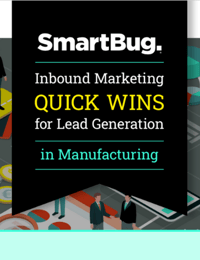
Evaluating manufacturing distributors before partnering with them is pivotal to a manufacturer’s business success. The right distributor will streamline logistics, handle marketing, leverage their networks to get your manufacturing company new business, and more. Taking these tasks off your plate helps you focus on your company’s strength: manufacturing high-quality products. But how do you identify the best distributor for your business and ensure your company’s continued success? Read on to find out.
Does Your Manufacturing Company Need a Distributor?
You may be asking yourself, “Does every manufacturer need a distributor?” The answer is no. Thanks to the internet, it’s easier than ever to reach your audience and sell directly to them. Doing so can save your manufacturing business money and help you boost revenue.
Here are some instances where you might consider handling distribution in-house:
- Your product sells well online: Is your product nonperishable and easy to transport? Managing your own distribution may be feasible for your manufacturing company.
- Online demand for your product is high: Are there multiple vendors selling competing products? If so, there may be room for your business to step in and sell its product(s) directly to customers.
- Your customers are easy to connect with digitally: If your customers are easy to connect with online and you have the in-house help to sell directly, your manufacturing company may not need a distributor.
- Your manufacturing capacity is low: As a manufacturer selling your product, you have the capability to take products off the market should you experience supply deficiencies; however, distributors aren’t as forgiving and will expect you to provide the necessary product volume to meet demand.
- You’re targeting big-name retailers: The Walmarts of the world will make deals directly with manufacturers. It saves money and allows them to sell at a less expensive price. Smaller mom-and-pop retailers often avoid cutting deals with manufacturers because they don’t want to handle the additional administrative work.
7 Questions to Ask When Evaluating Manufacturing Distributors
You’ve done your research and determined that in-house distribution isn’t the best fit for your manufacturing company. Now you’re on the hunt for a top-notch manufacturing distributor that can get your product(s) to the right retailers. What should you look for in this ideal partner?
How large—or small—is the distributor?
Hire a large distributor, and you may not get the personal attention your manufacturing company needs. Hire a small distributor, and you may not get the inroads to retailers you want. Determine what your manufacturing company’s goals are and what size distributor you need to achieve them.
What is the distributor’s specialization?
What is your industry focus and which distributors have clients in those industries? Seek out distributors who have experience in your sector, business, and the technical aspects that go along with it.
Do core values and objectives align?
Look for distributors that align with your businesses objectives and principles to ensure your manufacturing company’s business goals are met.
Can the distributor handle your company’s inventory and logistics?
Note a manufacturing distributor’s warehouse space availability, tracking capabilities, trucks, and other relevant capabilities to determine if the distributor can handle your company’s product supply.
What do the distributor’s finances look like?
Performing due diligence on a company’s finances is important when your business is selecting a manufacturing distributor. Checking the distributor’s finances—credit history, timeliness of payment, and so forth—will help you avoid unnecessary harm and give you better insight into your potential partner.
How large is the distributor’s sales force?
A larger sales force means more reach. More reach usually means more sales. While you’re checking on the size of the distributor’s sales force, gather information about the team’s past sales history with comparable products.
Does the distributor have in-depth marketing knowledge and capabilities?
Find a distributor that offers strategic marketing capabilities that will help your business accomplish the following:
- Manage the Buyer’s Journey
- Build new partnerships with suppliers
- Generate new leads
- Increase revenue by helping with product content, social media, digital campaigns and more
Evaluating manufacturing distributors isn’t an easy task. Finding the perfect-fit distributor that will meet your goals and objectives takes time, patience, and comprehensive research. Now that you’re armed with key questions that will help you thoroughly and efficiently assess manufacturing distributors, you’re on your way to success.
About the author
Courtney Fraas is a SmartBug Media Inbound Marketing Strategist based in Savannah, GA. With eight years of marketing experience, Courtney specializes in copywriting, visual design and project management. When she isn’t crafting customer-focused messaging, Courtney is busy traveling near and far, playing with her pup, and becoming an expert Airbnb host. Read more articles by Courtney Fraas.






















